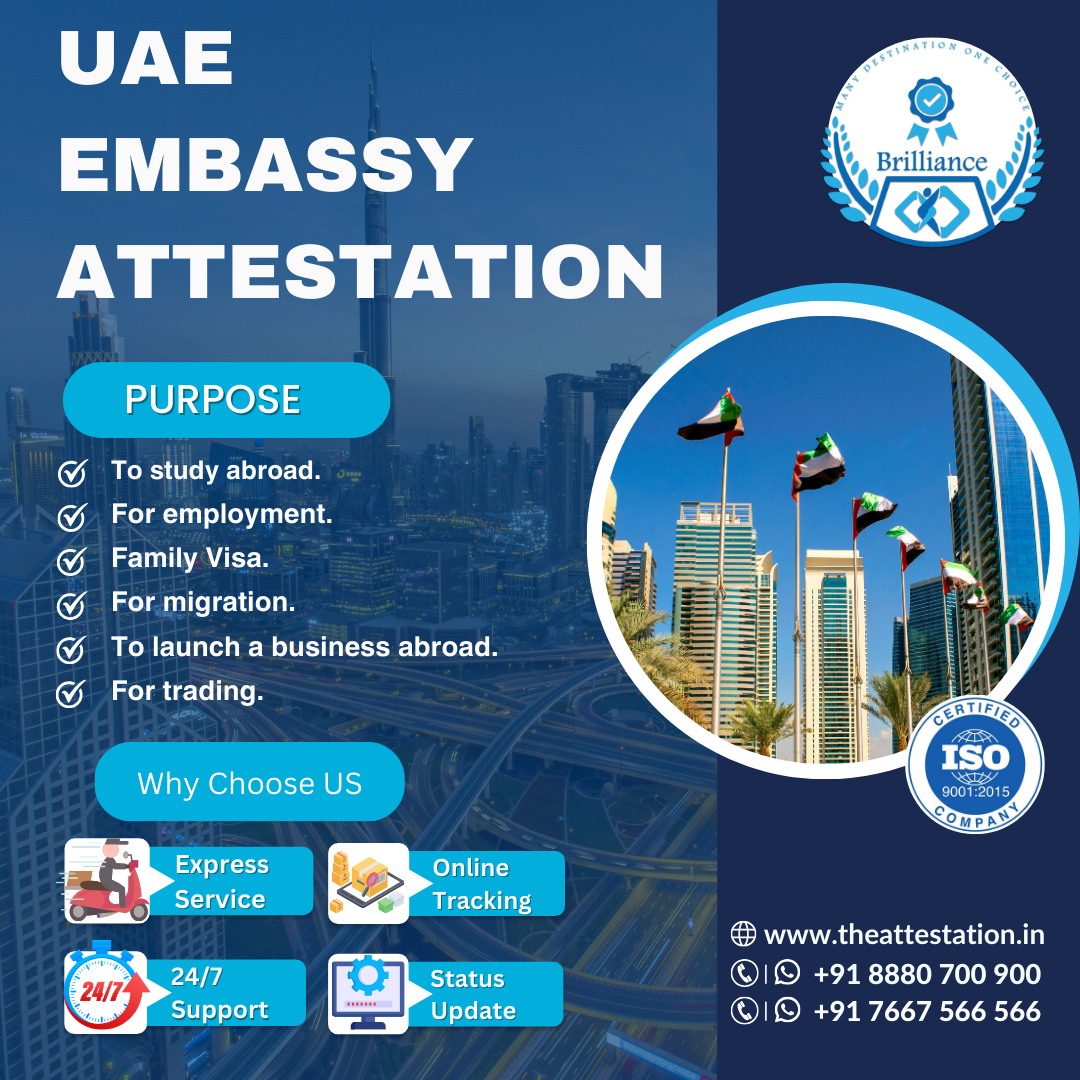Navigating UAE embassy attestation for both educational and non-educational documents is a critical process for individuals and organizations intending to utilize their documents in the United Arab Emirates. You must understand the requirements and procedures for UAE embassy attestation, irrespective of work, education, commercial, or personal purposes.

Here is an overview to Navigate UAE Embassy Attestation for Educational and Non-Educational Documents
Document Identification:
Ascertain which documents need to be attested. In addition to non-educational documents like birth certificates, marriage certificates, employment documents, and powers of attorney for various legal, administrative, or personal matters, this may also include educational certificates like degree certificates, diplomas, and transcripts for academic purposes.
Notarization, if necessary:
Before being attested by the UAE embassy, some documents would need to be notarized by a recognized authority in the country of issue. Make sure your documents are notarized by the UAE embassy's specifications.
State-Level Attestation (if necessary):
State-level attestation may be required before the UAE embassy attestation, depending on the type of document and the nation. At the state or regional level, this phase confirms the documents' authenticity.
Attestation from the Ministry of Foreign Affairs (MOFA), if necessary:
Before being verified by the UAE embassy, certain documents may require authentication from the Ministry of Foreign Affairs (MOFA) or a comparable body in the nation of issue. The documents are further verified for use internationally in this step.
Prepare necessary documents:
Make sure you have all the necessary documents available for attestation, including application forms, copies of identification such as passports, and the original and any supporting documentation.
Fill out application forms:
Complete and carefully fill out the necessary application forms for UAE embassy attestation. Make sure the forms are signed where necessary and supply all the information that is needed.
Submit documents to the UAE Embassy:
Send your documentation to the UAE consulate or embassy in the nation where it is issued. Depending on the needs of the embassy, this can be completed in person or through a special courier service.
Pay Fees (if any):
Fees for attestation services may be imposed by certain embassies. Make sure you are familiar with the embassy's accepted forms of payment and fee schedule.
Wait for processing:
Give the embassy enough time to process your documents. The time required for UAE embassy attestation procedures varies, so be sure to schedule your appointment well in advance and submit your documents.
Obtain Attested Documents:
Get your confirmed documents in person or via the authorized courier service after the UAE embassy attestation procedure is finished. Make sure the attestation stamps or certificates are accurate and comprehensive by verifying them.
Additional Legalisation (if Necessary):
Further legalization procedures inside the United Arab Emirates may be required for the documents, contingent upon their intended usage. This could involve notarization by a notary public in the United Arab Emirates, extra attestation from government ministries or agencies, and translation into Arabic, if necessary.
Using Attested Documents:
Your documents are ready for usage in the UAE once they have been certified by the UAE embassy and any other necessary authorities. Present them as required for personal, professional, educational, legal, or commercial transactions.
A Successful UAE embassy attestation can be achieved by individuals or organizations through closely adhering to specific rules and regulations by making sure that the UAE embassy's standards are fulfilled without any errors. This guarantees that the authorities, institutions, and organizations in the United Arab Emirates will accept and recognize their documents, enabling a range of legal, business, educational, and personal transactions throughout the nation.





Comments